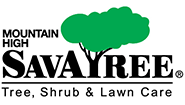
This summer has left its impression on many areas of our lives. The frequent and harsh hail storms have smashed windows, broken siding, and dented cars. The plentiful rainfall has helped many trees to flourish. The moderate temperatures have allowed many people to sit back and enjoy a lazy summer. However, one thing that seems to have been overlooked by many people is the health of their lawn. The added moisture this season, in combination with the moderate temperatures, has allowed for two specific pathogens to decimate many lawns throughout the Denver metro area. Necrotic Ring Spot
SYMPTOMS: Areas of dead circles will develop first in shady areas and then move out into sunny areas. A tuft of green grass is often seen still alive and viable inside the dead circle of grass
WHAT TO DO?
• Begin a fungicide treatment regimen in the spring
• Use disease resistant varieties of Kentucky bluegrass to seed and regrow grass in dead areas
• Maintain proper watering practices; don’t overwater and irrigate during the early morning hours rather than in the evening

Ascochyta
SYMPTOMS: The affected areas will be straw colored. Individual blades start dying back from the tips causing a “pinched” appearance starting at the top. Ascochyta’s appearance can vary from non-uniform patches to streaky. Wheel tracks from the lawnmowers will often be evident moving the straw appearance thru the otherwise green turf. WHAT IS
BEST TO DO?
• Maintain a properly balanced fertilization program
• Core aerate in spring and fall to reduce thatch buildup
• Keep mower blades sharp
• Mow to a height of 2.5 to 3 inches. Never mow more than 1/3 off the blade height at one time.
• Do not mow when turf is wet
• Water in the morning so the leaf blades can dry quickly
• Water lawn deeply to a depth of 5 to 6 inches but water less frequently. Do not over water as this can worsen the disease.
We can help you manage your diseased lawn and plants, click here to send us an estimate request, or call us at 303.232.0666.
